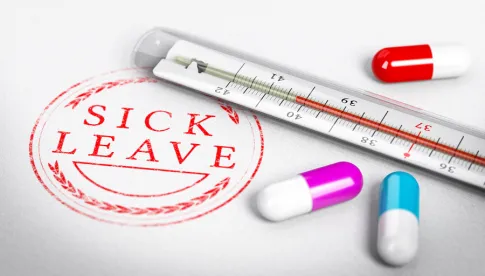On March 14, 2020, the House of Representatives passed H.R. 6021, the “Families First Coronavirus Response Act,” which contains provisions related to mandatory paid leave for employers with fewer than 500 employees. The bill, if enacted, mandates that covered employers provide paid leave under certain circumstances caused by the coronavirus outbreak. We anticipate that this bill will be amended to some degree before it is enacted, and we will continue to provide updates as this bill moves through the legislative process in Congress.
The principal provisions of the bill are summarized below.
The bill creates a new paid leave benefit called “emergency paid leave.”
-
Employees who are eligible for emergency paid leave are those individuals who are unable to work due to one of the following conditions or situations: (i) the employee has a current diagnosis of COVID-19; (ii) the employee is seeking a diagnosis or care for symptoms consistent with COVID-19; (iii) the employee is ordered to comply with an order from a healthcare provider or public official to quarantine because the employee would present a potential health threat to the workplace; (iv) the employee has to care for a family member who has COVID-19, is seeking treatment or care for COVID-19 symptoms, or has been ordered to quarantine by a healthcare provider or government official; or (v) the employee has to care for a child whose school or child care facility has closed due to COVID-19.
-
The bill mandates paid leave of up to 80 hours at an employee’s regular rate if the employee takes leave to treat his or her own health issues related to COVID-19. For any other qualifying leave reason, the bill mandates paid leave at two-thirds of an employee’s regular rate.
-
Part-time employees are entitled to leave for the two-week period for the hours they would normally be scheduled to work and are entitled to similar paid leave.
-
The paid emergency leave is in addition to any other paid sick leave provided by a covered employer.
The bill expands the existing provisions of the Family and Medical Leave Act (FMLA) to provide for “public health emergency leave” in the following ways:
-
The bill provides for paid leave for up to 12 weeks at a rate of two-thirds of the employee’s pay for any of the following circumstances: (i) to comply with a recommendation or order to quarantine due to exposure or symptoms of coronavirus; (ii) to care for a family member who has coronavirus or is exhibiting symptoms; and (iii) to care for children if the child’s school or place of care has been closed, or the child’s care provider is unavailable.
-
The leave entitlement goes into effect only after 14 days of leave. During the first 14 days of leave, the employer is not under any obligation to pay an employee. It appears, however, that any employee eligible for the public health emergency leave would otherwise be entitled to leave under the new emergency paid leave provisions of the bill.
-
The leave applies to all employees (full time and part time) who have been employed by an employer for at least 30 days. This appears to be the only eligibility requirement under the expanded FMLA provisions.
-
To determine whether an employer is subject to the 500-employee threshold, all employees of the employer at all separate locations and divisions are included if the separate locations and divisions are a single integrated company. Some employers may take the position that they are over the 500-employee threshold based on operational control and common management in order to be excluded from the 500-employee mandate.
-
The bill provides a potential exemption for employers with fewer than 50 employees if the Department of Labor determines that providing the paid leave would jeopardize the viability of the business as a going concern. We expect that a firm exemption will be included in any final bill.
Unionized employers that are currently contributing to a multi-employer paid sick leave plan can satisfy the paid leave obligation by contributing the requisite amount of emergency leave to the plan.
One important thing to keep in mind is that employers cannot make changes to paid sick leave policies after the effective date of the bill. This means that employers cannot attempt to circumvent their obligations under the new bill by eliminating or amending existing policies or attempting to use existing policies to supplement their obligations under the bill.
Employers would receive a refundable tax credit against the employer portion of employment taxes paid for wages related to any of the leaves described above. Employers will also be reimbursed if costs associated with providing emergency paid or family leave exceed the amount of the employer portion of the employment taxes paid, subject to a cap based on the number of individuals who took leave and the number of leave days taken in each calendar quarter.
The House is expected to take up a technical corrections bill today to address mistakes that were made in the bill passed on Friday night. The Senate is expected to take up the bill (presumably as amended by the technical corrections bill) soon thereafter. It is possible that the bill could be amended further in the Senate, but that is unclear at this point.






 />i
/>i

